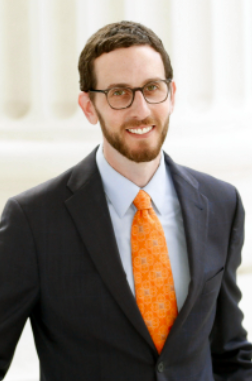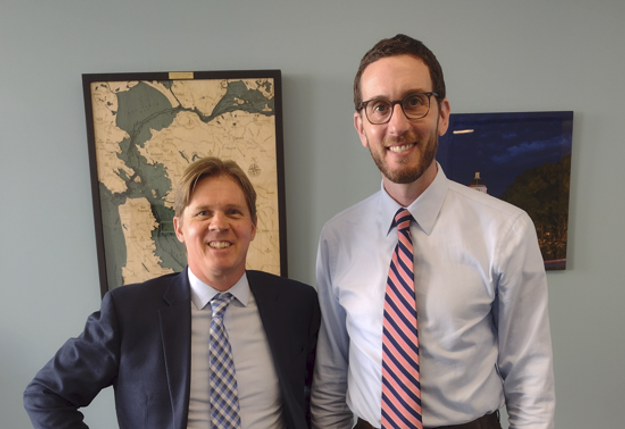SLP Insights
NOTE: Sober Linings Playbook is a personal website. Any views or opinions expressed herein belong solely to the website owner and do not represent those of individuals or organizations the owner may be associated with in a professional or personal capacity, unless explicitly stated.
When New York City officials began to release data about the lives saved by “safe injection sites” the city established late in 2021, I began to wonder about the likelihood my home state would follow suit with similar programs. To that end, I decided to reach out to California’s Senator Scott Wiener (D-San Francisco) for an interview to ask about his “Overdose Prevention Program” proposal, SB 57.
Elected in 2016, Senator Scott Wiener’s district includes all of San Francisco and some of the surrounding area. Among other roles, Wiener serves as Chair of the Senate Mental Health Caucus. Prior to becoming Senator, Wiener was a member of the San Francisco Board of Supervisors. Before his election to the Board of Supervisors, he practiced law for 15 years and served as Deputy City Attorney in the San Francisco City Attorney’s Office. During his tenure in the Legislature, Senator Wiener has worked to expand insurance coverage for substance use disorder (SUD) treatment, to encourage the use of evidence-based treatment and to establish innovative harm reduction programs and policies. Senator Wiener has been working on a proposal (SB 57) to allow pilot “overdose prevention programs” (safe injection sites) in Los Angeles, Oakland and San Francisco.
When I met with the Senator, we spoke about the chances of SB 57 being enacted this year as well as his general perspective on substance use disorder (SUD) and harm reduction policy and programs. Here’s what he had to say:
SLP: I’ve followed your recent SUD-related legislative proposals. It’s clear from your work in the Legislature you are a leader on efforts to expand insurance coverage and access to SUD treatment and to implement innovative approaches to addressing and treating SUDs. I’m curious as to what shaped your interest and desire to change the way we address drug use and addiction.
SW: I think it’s sort of life experience. Not my own. I am fortunate my family and I have not had challenges with substance use. But I’ve had friends over the years — some close friends — who have really struggled with substance use, particularly with meth. I’m lucky that no one that I’ve known personally has overdosed. But of course, in my community over the years, a lot of people have died or have had their lives upended.
That’s been the case for as long as I’ve been around as a gay man, but in San Francisco it has really taken a toll on the community. It’s a community that lost so many people to HIV but came so far in dramatically reducing HIV deaths. But then here we are with this whole other explosion of people getting sick and dying. And we’re not always taking the best approach for treating people for this disease. That’s what really motivates me to try new approaches — science-based approaches — and try to move away from the old way of doing it…the sort of Nancy Reagan “Just Say No” where it’s a personal failure that you’re using drugs. We have to treat people with a health care approach.
SLP: I think a case can be made that the harm reduction movement arose from HIV/AIDS activism. With respect to SUDs, however, it feels like there is not the same sort of big and influential social movement.
SW: In San Francisco I think there is. But nationally there has not been a groundswell and I hope there will be. Every community has been impacted, red and blue. But there is still a lot of aversion to taking the steps that actually work whether it’s syringe exchange or safe consumption sites. There are still all of these judgments and stigma and resistance.
SLP: I think that’s true even within the recovery community. Or sometimes particularly within the recovery community with respect to things like medication assisted treatment, syringe services or anything that can be viewed as “enabling” drug use.
As a member of the Legislature, your work is focused on changing the law. I was wondering whether you have thoughts on how we might also change hearts and minds around substance use disorders and treatment.
SW: People are so stuck on accountability. Obviously, if people are committing crimes related to their drug use, they need to be accountable. But [I don’t agree with] the idea that we should be arresting drug users and that’s the only way to make them accountable and treat them. I understand why people have that perspective. And yes, for some people it can work out. There are people who say that had they not gone to jail they’d still be using today. I understand for some people that might have helped. But we know largely that doesn’t work.
I think society is slowly evolving on these issues, but I’ll tell you it’s still rough at times. But the good thing is that when I did my bill last year to authorize contingency management (SB 110), there was almost unanimous support among my colleagues. And I thought that was going to be a really hard controversial bill. But the governor sadly vetoed it. Although the state is doing their own pilot study. [SLP comment: In his veto message, the Governor said: “The outcomes and lessons learned from the pilot project should be evaluated before permanently extending the Medi-Cal benefit. As such, this bill is premature.”]
SLP: Despite the fact that contingency management has been studied and found to be effective (and used by the federal government for years now because it works), headlines characterized the treatment as derisively as “paying people to stay clean.”
SW: Yes. There were people on social media who went after it, but early on there was a positive Fox News story about it. After that, all of my colleagues just started voting for it. I think that’s because there is an abstinence flavor to the [contingency management] approach. A person has to have will power and there are incentives. It’s one of those things where it appeals to Republicans because of that, but it also has a scientific basis.
SLP: I wanted to ask about the overdose prevention pilot program that you’ve proposed for several years (SB 57).
SW: We’re on year eight now. It started before I got here.
SLP: Eight years? Wow. I could well be wrong, but it seems to me that if ever there were a year for it to pass, this might be the year. As overdose numbers increase significantly, harm reduction approaches seem to be gaining more acceptance. [SLP update: SB 57 was introduced in 2021 and was passed by the Senate. On June 30, 2022, the Assembly passed SB 57. The question now is whether the Governor (who beat a recall election last year and faces re-election this fall) will sign in it.]
SW: I think we have a real shot this year. We did get it on the Governor’s desk in 2018 and the last Governor [Jerry Brown] vetoed it. We are almost at the end of the road with this bill now. I do think that we have a good shot of getting it on the Governor’s desk. He hasn’t said what he would do with this bill, but three years ago he said he was very open to the idea. I’m cautiously optimistic we’ll get it enacted this year. This bill has definitely been quite a roller coaster.
SLP: Do you think it makes a difference that the Biden Administration has expressed support for harm reduction and that New York City has implemented safe injection sites?
SW: Yes. I mean the politics still are what they are and there are democratic lawmakers who will never vote for a bill like this for fear of getting attacked for creating drug dens or whatever. But I think events this year have signaled a shift.
SLP: The fentanyl-fueled increase in overdose deaths seems to have stirred up a sense of urgency about the need for public policy solutions. It seems however, that reactions can either go toward the more punitive, such as increased penalties for fentanyl dealers as we have seen in some states, or toward more support for therapeutic or harm reduction approaches. Do you have an opinion as to which way the pendulum might be swinging?
SW: We see bills in the Legislature trying to increase penalties on fentanyl and classify overdose deaths as murder. Fentanyl and [its analogs] are a new thing. It’s so potent. It’s poison in a lot of ways. I understand why people are so concerned, particularly when people are not intending to take fentanyl. People are thinking they are taking a Percocet and it has fentanyl in it and they die. Kids are buying pills on Snap Chat that have fentanyl. It’s not that they were intending to use fentanyl. It was just laced.
I think that we need to some different things to address fentanyl for sure. We need to give people access to testing technologies to protect themselves. One of the facts of our drug criminalization regime is that quality control is really hard. For example, fentanyl test strips are still treated as illegal drug paraphernalia in many states.
SLP: Unlike for alcohol where we do have a regulatory regime to ensure quality control.
SW: Exactly. I don’t think fentanyl should change the fundamental strategy around trying to reduce the harm.
SLP: During your tenure in the Legislature, you’ve worked on a wide range of SUD-related proposals that expand insurance coverage and increase access to evidence-based treatment and harm reduction. I was wondering whether you had thoughts about what might be the next thing you’d like to work on in this area.
SW: We’re doing a lot of work to try to shore up mental health parity so that people can actually get access to treatment. We did a big mental health parity bill in 2020 [SB 855]. We followed up last year. This year we’re trying to increase penalties for insurance companies that inappropriately refuse to cover mental health care services. We’re also doing work to try to increase the mental health workforce, treaters.
There is still a lot of work to be done.
SLP: Thank you so much for your time, Senator. And thank you for the work you’re doing on behalf of people who struggle with substance use and mental health disorders and their family and friends.
SW: Thank you Grant.
Sober Linings Playbook
The author with Senator Scott Wiener



